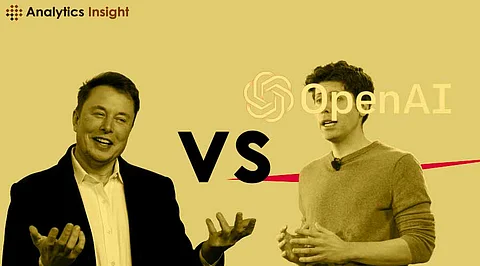

The move of OpenAI from non-profit to for-profit has stoked much controversy. This debate largely took place between two key figures, Elon Musk and Sam Altman. This decision points towards crucial ethical questions concerning the future of Artificial Intelligence and its impact on society.
OpenAI is a nonprofit research organization that was founded in 2015 to make sure that artificial general intelligence (AGI) would be beneficial for all of humanity. To this end, OpenAI was supposed to be a collaborative effort in the development of AI technology with safety and ethics under founders like Elon Musk and Sam Altman.
A nonprofit model suited them best, given their values, for which profit motives should not dictate the direction of the organization.
In 2019, OpenAI began building a "capped-profit" entity called OpenAI LP. This would allow the firm to bring in more significant funding and resources. For investors, returns were generated up to a certain threshold, and any amount beyond that was plowed back into the mission of the organization.
Nevertheless, recent reports suggest that OpenAI might be looking to transition towards another more classic for-profit model. These reports also suggested that CEO Sam Altman would get a 7% equity stake in such an arrangement.
Elon Musk, one of the initial co-founders of OpenAI, criticized this change. This move from a non-profit to a for-profit model is running strictly contrary to the very mission that inspired the initiative of OpenAI.
Musk shared his concerns on social media stating that this will increase the ethical risks. He said that focusing on returns would lead to decisions that do not serve human benefit.
The current CEO of OpenAI, Sam Altman, supports the transition on the basis that it will require huge investments to facilitate advanced research and development of AI technologies.
Altman explains that the capped-profit model was an imperative step towards ensuring that enough investment flows in to compete with the other giants of tech and fast-track the pace achieved in AI.
The new structure is in line with the mission of OpenAI since profit realized over a certain threshold will still be put back into the objectives of the organization.
The ethical arguments revolve around several key issues:
1. Mission Integrity: It actually takes away the integrity of that mission by making it a for-profit entity. It is seen that once this venture starts generating profit, then all other commitments and promises may be forgotten in a chase to maximize profits by upholding the commitment to ensuring that AI benefits all of humanity.
2. Transparency and Accountability: A for-profit model would lack transparency and accountability as maybe decisions would be made according to the pocket rather than ethical considerations. It would come with reduced public oversight and increased risks of misuse of AI technology.
3. Access and Equity Access: It is also limited, mainly because the for-profit interests of OpenAI may direct its focus towards more profitable products and services, thus limiting access to AI developments for underserved communities. Equitable access to AI technology can only be generalized if it effectively provides benefits to various communities.
4. Long-term Impact: There is no concrete long-term impact that focusing on profit will have in the building of AI. Enough funding can hasten the rate but also increase the likelihood of creating AI that does not meet ethical standards and societal needs.
There is always a challenge between attraction for necessary funding and the need for ethical standards. Some believe a hybrid model of profit motive balanced with strong ethical oversight would be the way to go, establishing governance so strong that ethical considerations stay at the center of decisions made.
The Elon Musk-Sam Altman debate brings the complex ethical landscape of AI development into sharp focus. The funding needed to advance the technology is important. However, this cannot be done at the cost of compromising the safety, transparency, and equitable accessibility of AI.
